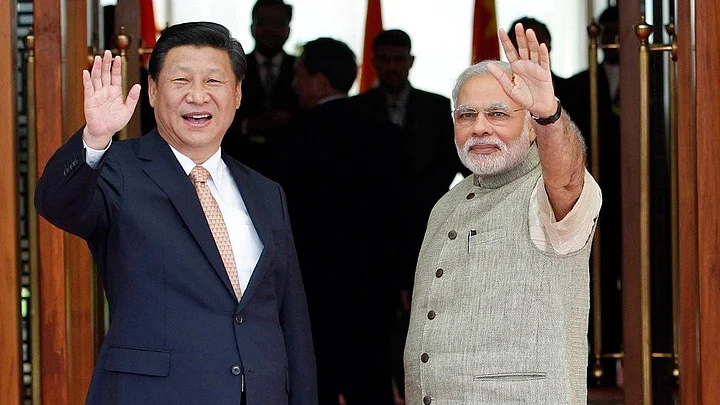The Wuhan summit between Prime Minister Narendra Modi and Chinese President Xi Jinping could be as significant as the one between former premier Rajiv Gandhi and then leader of China Deng Xiaoping in 1988, the official Chinese media commented on Tuesday, 24 April.
Xi and Modi will hold an "informal summit" in central China's Wuhan city from 27 to 28 April to improve bilateral relations and discuss global issues of mutual concern.
Both the leaders will try to work out a new paradigm for the bilateral ties bogged down with a host of disputes and differences.
The meeting can be as significant as the one in 1988 when Chinese leader Deng Xiaoping and then Indian Prime Minister Rajiv Gandhi met, and will set the course for bilateral ties.Op-ed in Global Times
Another official newspaper, the China Daily, said it remains to be seen whether the Modi-Xi summit "will live up to its billing as an unprecedented meeting" like the 1988 meeting between Rajiv and Deng.
This (Rajiv-Deng summit) was when the two countries agreed to put their quarrels behind them. However, this has proved harder to do than say. Yet, clearly both Beijing and New Delhi hope for something substantial from the upcoming two-day meeting, since the announcement was made on Sunday after talks between State Councilor Wang Yi and visiting Indian External Affairs Minister Sushma Swaraj.The China Daily
In its editorial 'Xi-Modi meeting to show diplomatic wisdom of China, India', the Global Times said, "Indian leaders attach importance to reciprocity in diplomacy. After visiting China in 2015, Modi attended the Ninth BRICS Summit in Xiamen last year and will attend the summit of Shanghai Cooperation Organisation (SCO) in Qingdao in June".
He is visiting China before June to meet Xi. This unusual move highlights how much the two sides value this meeting, it said.
‘Hostility Towards India Being Replaced by Hopes for Friendly Ties’
The tabloid which is attached to the ruling Communist Party of China's official publications and known for its anti-India rhetoric said:
Within China, hostility towards India is being replaced by hopes for friendly ties. The two countries need more communication to enhance mutual trust and eliminate the possibility of another border crisis.The Global Times
"Asian powers and emerging countries, both China and India share many common interests in international affairs. They both have to strive for the right to develop and face Western pressure on issues like trade and intellectual property rights. There is large room for economic cooperation... Many conflicts between China and India broke out due to a lack of trust or at Western instigation, like the border disputes and the so-called dragon-elephant competition," it said.
The US and Japan began underscoring Indo-Pacific strategy last year in an explicit attempt to rope in India against China. But the strategy hasn’t brought India any strategic benefit except to trigger vigilance between New Delhi and Beijing, it said.
‘There’s Good Reason for Optimism’
China and India cooled down soon after the Doklam standoff, which indicates the solid foundation for ties. The West wanted China and India to confront each other, but it didn't work out that way, it said.
China and India have more robust economic development than other emerging countries and are both independent. Any attempt to manipulate the way they deal with each other will likely fail, it said.
The cooperation of two countries, home to about 40 percent of the global population, is highly significant for the whole world, it said.
The China Daily editorial said “there is good reason for optimism” for Modi-Xi summit.
The previous meeting between Xi and Modi in Xiamen last September produced an end to the tense border standoff (Doklam) that had been souring relations for months, it said.
"That incident was a reminder to the two proud neighbours that they must manage their border issues, or they will continue to trouble them.”
While third parties may profit from a deteriorating China-India relationship, the two countries themselves will not. They should be vigilant of others seeking to benefit at the expense of their friendly relations and recalibrate their relationship so it serves more constructive purposes.
(This article has been published in an arrangement with PTI.)
(The Quint is now on WhatsApp. To receive handpicked stories on topics you care about, subscribe to our WhatsApp services. Just go to TheQuint.com/WhatsApp and hit send)
